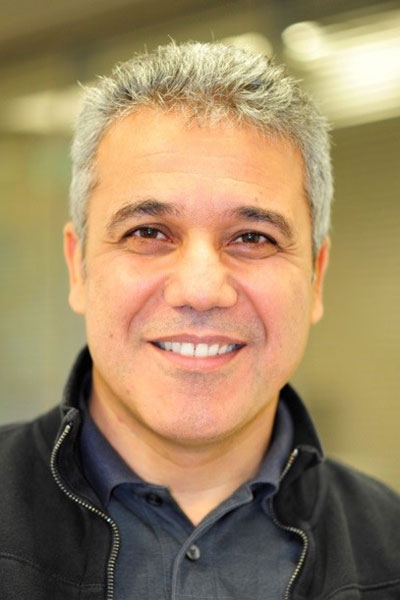Flexible Radio Access Beyond 5G: A Future Projection
Dr Arslan has graciously offered to continue the discussion on 5G technologies.
The topic is Flexible Radio Access Beyond 5G: A Future Projection.
Abstract:
Today's wireless services and systems have come a long way since the rollout of the conventional voice-centric cellular systems. The demand for wireless access in voice and multi-media applications has increased tremendously. The trend on the variety and the number of mobile devices along with the mobile applications will certainly continue beyond 5G, creating a wide range of technical challenges. One of the biggest challenges is the security of the communication beyond the classical crypto based approaches which secure the information. In this talk, security aspects of the physical communication and also physical signal which is called Physical Layer Security (PHY Security) will be discussed. Latest trends, threats, and techniques to improve the security of the physical signal will be discussed. The tentative outline of the talk will be as follows:
- Wireless Communication trends, requirements
- Importance of secure communication
- Classification of communication security
- PHY security: Communication and REM
- PHY security: Eavesdropping, Spoofing & Jamming
- Anti-jamming capable communication
- Cross-layer security
- Secure communication & other advanced radio access technologies
Case- studies:
a- Security in URLLC (URLL & Secure communication)
b- Security in vehicular network (V2V and V2I)
c- Security in NOMA
d- Security in LIS
Date and Time
Location
Hosts
Registration
-
 Add Event to Calendar
Add Event to Calendar
Speakers
 Dr. Arslan Arslan of USF
Dr. Arslan Arslan of USF
Flexible Radio Access Beyond 5G: A Future Projection” by Dr. Huseyin Arslan
Today's wireless services and systems have come a long way since the rollout of the conventional voice-centric cellular systems. The demand for wireless access in voice and multi-media applications has increased tremendously. The trend on the variety and the number of mobile devices along with the mobile applications will certainly continue beyond 5G, creating a wide range of technical challenges. One of the biggest challenges is the security of the communication beyond the classical crypto based approaches which secure the information. In this talk, security aspects of the physical communication and also physical signal which is called Physical Layer Security (PHY Security) will be discussed. Latest trends, threats, and techniques to improve the security of the physical signal will be discussed. The tentative outline of the talk will be as follows:
- Wireless Communication trends, requirements
- Importance of secure communication
- Classification of communication security
- PHY security: Communication and REM
- PHY security: Eavesdropping, Spoofing & Jamming
- Anti-jamming capable communication
- Cross-layer security
- Secure communication & other advanced radio access technologies
- Case- studies:
a- Security in URLLC (URLL & Secure communication)
b- Security in vehicular network (V2V and V2I)
c- Security in NOMA
d- Security in LIS
Biography:
Dr. Arslan (IEEE Fellow) has received his BS degree from Middle East Technical University (METU), Ankara, Turkey in 1992; MS and Ph.D. degrees in 1994 and 1998 from Southern Methodist University (SMU), Dallas, TX. USA. From January 1998 to August 2002, he was with the research group of Ericsson Inc., NC, USA, where he was involved with several projects related to 2G and 3G wireless communication systems. Since August 2002, he has been with the Electrical Engineering Dept. of University of South Florida, Tampa, FL, USA, where he is a Professor. In December 2013, he joined Istanbul Medipol University to found the Engineering College, where he has worked as the Dean of the School of Engineering and Natural Sciences. He has also served as the director of the Graduate School of Engineering and Natural Sciences in the same university. In addition, he has worked as a part-time consultant for various companies and institutions including Anritsu Company, Savronik Inc., and The Scientific and Technological Research Council of Turkey.
Dr. Arslan’s research interests are related to advanced signal processing techniques at the physical and medium access layers, with cross-layer design for networking adaptivity and Quality of Service (QoS) control. He is interested in many forms of wireless technologies including cellular radio, wireless PAN/LAN/MANs, fixed wireless access, aeronautical networks, underwater networks, in vivo networks, and wireless sensors networks. His current research interests are on 5G and beyond radio access technologies, physical layer security, interference management (avoidance, awareness, and cancellation), cognitive radio, small cells, powerline communications, smart grid, UWB, multi-carrier wireless technologies, dynamic spectrum access, co-existence issues on heterogeneous networks, aeronautical (High Altitude Platform) communications, channel modeling and system design, and underwater acoustic communications. He has served as technical program committee chair, technical program committee member, session and symposium organizer, and workshop chair in several IEEE conferences. He is currently a member of the editorial board for the IEEE Surveys and Tutorials and the Sensors Journal. He has also served as a member of the editorial board for the IEEE Transactions on Communications, the IEEE Transactions on Cognitive Communications and Networking (TCCN), the Elsevier Physical Communication Journal, the Hindawi Journal of Electrical and Computer Engineering, and Wiley Wireless Communication and Mobile Computing Journal.
Email:

